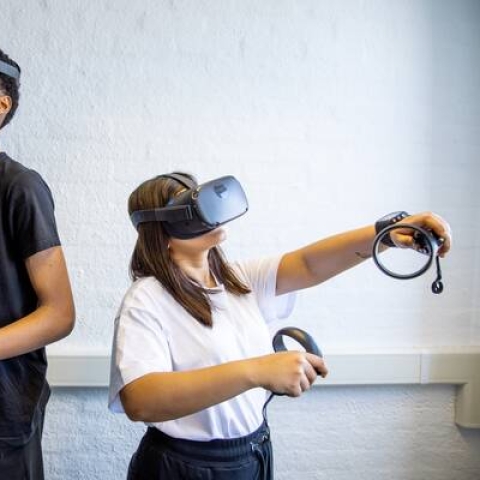

Older burglars are more efficient and successful at searching for valuable items than their younger colleagues, a new report shows.
17 July 2023
2 min read
The study, published in the Journal of Experimental Criminology, examined the development of offence-related expertise in a sample of convicted burglars, depending on their age.
The results revealed significant differences between the younger (under 21) and older burglars (over 21) in their virtual burglary performances. Older burglars demonstrated more developed expertise in terms of items stolen and the efficiency of their search compared to their younger counterparts. These findings suggest that expertise plays a crucial role in offence-related decision-making across the criminal career.
Researchers from the University of Portsmouth compared indicators of expertise between the two groups as they completed a simulated ‘virtual burglary’. The findings shed new light on the role of expertise in criminal decision-making and have implications for future crime prevention strategies and targeted interventions.
A total of 68 convicted burglars participated in the research, with 36 younger burglars and 32 older burglars taking part in the virtual burglary simulation. All participants were serving sentences in adult prisons or Young Offender Institutions in the UK.
Each offender was given the same virtual environment of a street of five terraced houses. Participants had to first choose which property to burgle and whether to access it through the front door or via an alleyway from the rear. They then had to work their way through the house which included a ground floor consisting of a hallway, kitchen, living room, and dining area. A master bedroom, nursery, study, and bathroom were located on the first floor, and an attic floor consisted of a games room and a third (teenager’s) bedroom.
Valuable items were distributed alongside other items (food, books) in locations consistent with a typical home. Some items were placed in clear sight, while others were hidden (for example, a tablet in a rucksack). Participants were able to “steal” anything they wanted and doors, cupboards and drawers could be opened. All participant movements and interactions (i.e., distance travelled, time spent in different areas, items stolen) were recorded by the computer simulation and then analysed by researchers.
One of the major implications of this research is its potential to inform crime prevention strategies and offender rehabilitation initiatives.
Amy Meenaghan, Undergraduate Programme Leader
The research was based on the concept of ‘expertise’ which refers to the characteristics, skills and knowledge that distinguish experts from novices. Expertise is developed through repeated practice and learning from that experience. For offenders, expertise has been shown to influence various stages of decision-making, from recognising relevant cues to guiding actions based on past events and experiences.
Dr Amy Meenaghan, School of Criminology and Criminal Justice at the University of Portsmouth says: “One of the major implications of this research is its potential to inform crime prevention strategies and offender rehabilitation initiatives. By understanding the cognitive processes associated with expertise in offending behaviour, experts can design crime prevention strategies that disrupt the offence decision chain and so deter further criminal activity.
“This is a significant step forward in applying cognitive psychology concepts to understand criminal behaviour. By using virtual reality as a safe and effective proxy for real-life behaviour, we have been able to gain unique insights into the decision-making process of burglars.”
The researchers hope this study will encourage further exploration of the impact of expertise on offending behaviour and contribute to evidence-based approaches to reducing criminal activity and promoting societal safety.
More from the School of Criminology and Criminal Justice...
Under representation of women in policing: Study reveals persistent barriers and gender differences in career advancement
13 July 2023
3 min read

Doctors and police officers training for the hardest job of all
27 April 2023
3 minutes

Virtual burglaries to shine light on why criminals often work in pairs
27 March 2023
4 min read

